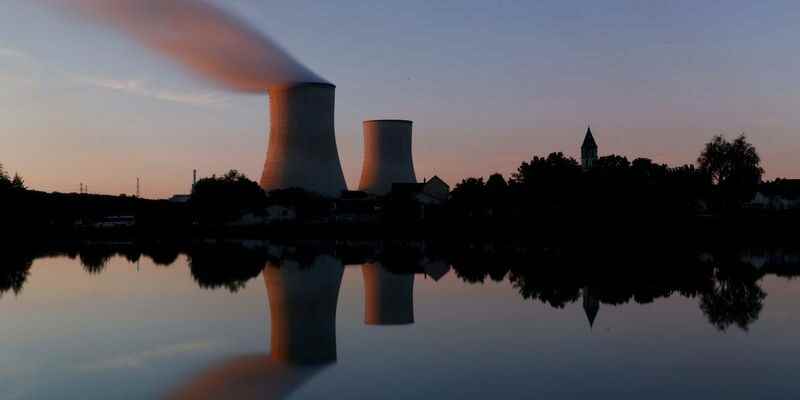PARIS (Reuters) – French nuclear power will have to recruit at least 10,000 people a year over the 2023-2030 period to meet the needs of the existing fleet of power plants and materialize the project to build new EPRs announced by Emmanuel Macron, officials said on Tuesday. sector managers.
The Head of State launched in February, during a speech in Belfort, the vast project of the renewal of the French nuclear fleet by announcing the construction of six new new generation reactors (EPR2) and the possibility of eight additional reactors, with a first commissioning by 2035.
“One in two employees who will work in the sector in 2030 does not work there today, so there is a major challenge to attract, train, recruit, and accelerate the experience and skills of newcomers “, declared Alain Tranzer, general delegate for industrial quality and nuclear skills of EDF, during a press conference.
“I believe that there is no other major industrial sector that has a load plan with so much increased load in the years to come,” he added.
According to EDF, the French nuclear industry could recruit 10,000 to 15,000 people per year over 2023-2030, compared to 5,000 per year over the period 2019-2022. Of this total, around 3,000 annual recruitments are nuclear-related within the group, compared to 2,500 in 2019-2022.
The Group of French nuclear energy industrialists (Gifen) which works to ensure the sustainability of the know-how of the sector by carrying out an analysis of the loads to come over 10 years and the capacities which are linked to them – through a program ” Match” whose conclusions are scheduled for March 2023 -, for its part mentioned 10,000 annual recruitments.
Gabriel Oblin, director of the EPR2 project, indicated that, in the event of a rapid decision to build a first pair of new reactors at Penly (Seine-Maritime), the site could represent 7,500 employees at its peak. activity, in 2029. The first preparatory work would take place in mid-2024, the “first nuclear concrete” at the end of 2027 and commissioning in 2035-2037, he said.
(Report Benjamin Mallet; edited by Sophie Louet)
